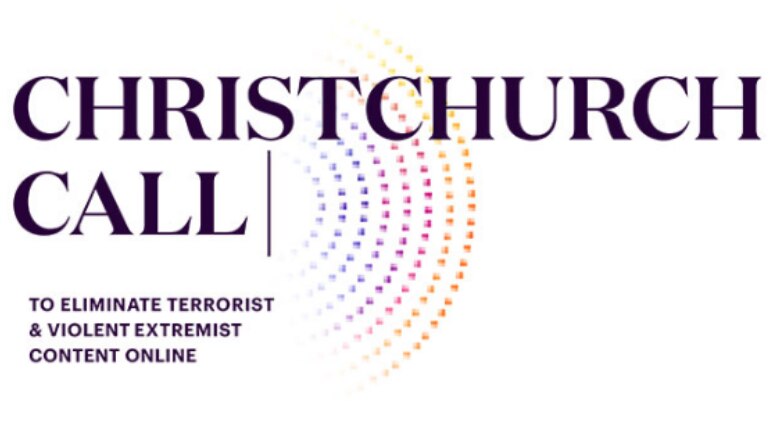Relevant for prelims and Gs paper 3 (national security)

HIGHLIGHTS
- To combat online extremism, India has decided to sign an international call
- It has been initiated by the governments of France and New Zealand along with top social media companies
- White House officials raised concerns that the document might be in contravention of the First Amendment
To combat online extremism, India has decided to sign an international call initiated by the governments of France and New Zealand along with top social media companies after the Christchurch attacks.
The document called “Christchurch Call To Action” was signed and adopted on Wednesday with participation from 26 nations, including France, New Zealand, European Commission, Ireland, Norway, Senegal, Canada, Jordan, UK, Indonesia, Australia, Germany, Japan, Spain, Netherlands, Sweden and India.
Among the social media companies and IT enterprises were: Microsoft, Qwant, Daily Motion, Google, YouTube, Twitter, Facebook and Amazon.
India was represented by the Secretary, Ministry of Information and Technology, Ajay Prakash Sawhney.
The Call outlines “collective”, “voluntary” commitments from Governments and online service providers intended to address the issue of terrorist and violent extremist content online and to prevent the abuse of the internet as occurred in and after the Christchurch attacks.
The document highlights, “All action on this issue must be consistent with principles of a free, open and secure internet, without compromising human rights and fundamental freedoms, including freedom of expression. It must also recognise the internet’s ability to act as a force for good, including by promoting innovation and economic development and fostering inclusive societies.”
While the document stresses on the need to ensure that it does not impinge upon the rights of free speech of citizens of any country, the US has decided not to sign the document amid free speech concerns.
A day earlier, White House officials raised concerns that the document might be in contravention of the First Amendment. “We continue to be proactive in our efforts to counter terrorist content online while also continuing to respect freedom of expression and freedom of the press,” the White House said.
“Further, we maintain that the best tool to defeat terrorist speech is productive speech, and thus we emphasize the importance of promoting credible, alternative narratives as the primary means by which we can defeat terrorist messaging.”
After a plea by New Zealand Prime Minister Jacinda Ardern for greater social media accountability, she and her French counterpart, President Emmanuel Macron, organized call to action which was unveiled on Wednesday in Paris.
The document states that the governments/signatories should commit to:
- Counter the drivers of terrorism and violent extremism by strengthening the resilience and inclusiveness of societies to enable them to resist terrorist and violent extremist ideologies, including through education, building media literacy to help counter distorted terrorist and violent extremist narratives, and the fight against inequality.
- Ensure effective enforcement of applicable laws that prohibit the production or dissemination of terrorist and violent extremist content, in a manner consistent with the rule of law and international human rights law, including freedom of expression.
- Encourage media outlets to apply ethical standards when depicting terrorist events online, to avoid amplifying terrorist and violent extremist content.
- Support frameworks, such as industry standards, to ensure that reporting on terrorist attacks does not amplify terrorist and violent extremist content, without prejudice to responsible coverage of terrorism and violent extremism.
- Consider appropriate action to prevent the use of online services to disseminate terrorist and violent extremist content, including through collaborative actions, such as:
The documents draws in the online service providers to commit to:
- Take transparent, specific measures seeking to prevent the upload of terrorist and violent extremist content and to prevent its dissemination on social media and similar content-sharing services, including its immediate and permanent removal, without prejudice to law enforcement and user appeals requirements, in a manner consistent with human rights and fundamental freedoms.
- Provide greater transparency in the setting of community standards or terms of service, including by:
- Outlining and publishing the consequences of sharing terrorist and violent extremist content;
- Describing policies and putting in place procedures for detecting and removing terrorist and violent extremist content.
Among a list of other things, the document puts in safeguards for free speech in a manner consistent with human rights and fundamental freedoms, including by:
- Prioritising moderation of terrorist and violent extremist content, however identified;
- Closing accounts where appropriate;
- Providing an efficient complaints and appeals process for those wishing to contest the removal of their content or a decision to decline the upload of their content.
All signatories have “affirmed” their willingness to continue to work together, in existing fora and relevant organizations, institutions, mechanisms and processes to assist one another and to build momentum and widen support for the Call.

